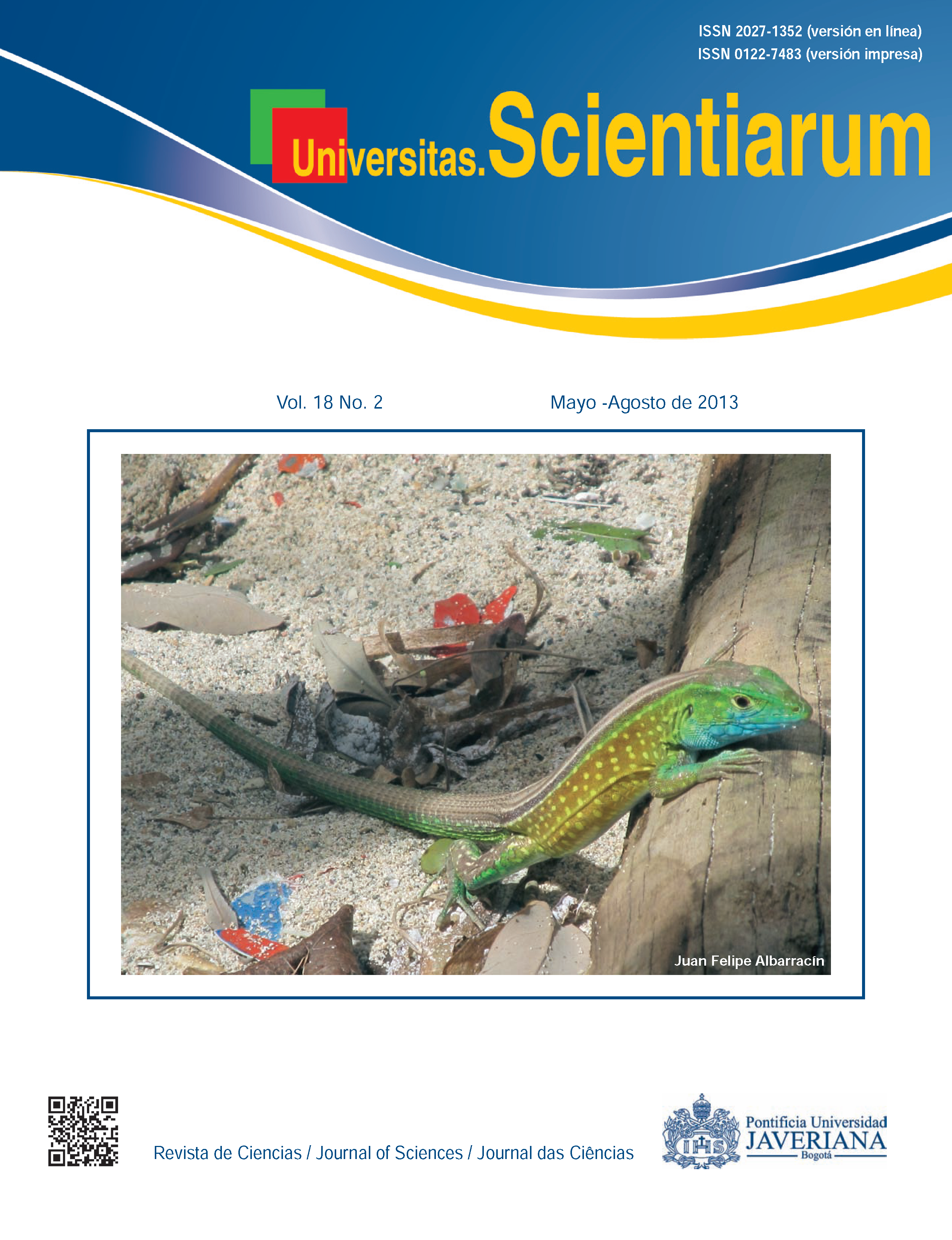Abstract
The discovery of nucleic acids in maternal plasma unlocked new possibilities for noninvasive prenatal diagnosis. However, the factors affecting the concentration of fetal RNA in maternal plasma samples are unspecified. Here we studied the effect of storage time (15 to 30 days) and temperature (4°C, -20°C and ambient) and of the presence of Trizol on the concentration of RNA in plasma samples taken from pregnant women before their 20th week. Thirty-three RNA samples were extracted from plasma and analyzed by spectrophotometry. The amount of RNA was statistically lower in samples stored at -20°C whereas storage time and the presence or absence of Trizol did not affect RNA level. Temperature affected the concentration of RNA, rather than time and the addition of Trizol. In conclusion, temperature is a key factor in the extraction of RNA, and the freeze-thaw process most likely affects RNA concentrations negatively.
Univ. Sci. is registered under a Creative Commons Attribution 4.0 International Public License. Thus, this work may be reproduced, distributed, and publicly shared in digital format, as long as the names of the authors and Pontificia Universidad Javeriana are acknowledged. Others are allowed to quote, adapt, transform, auto-archive, republish, and create based on this material, for any purpose (even commercial ones), provided the authorship is duly acknowledged, a link to the original work is provided, and it is specified if changes have been made. Pontificia Universidad Javeriana does not hold the rights of published works and the authors are solely responsible for the contents of their works; they keep the moral, intellectual, privacy, and publicity rights. Approving the intervention of the work (review, copy-editing, translation, layout) and the following outreach, are granted through an use license and not through an assignment of rights. This means the journal and Pontificia Universidad Javeriana cannot be held responsible for any ethical malpractice by the authors. As a consequence of the protection granted by the use license, the journal is not required to publish recantations or modify information already published, unless the errata stems from the editorial management process. Publishing contents in this journal does not generate royalties for contributors.



